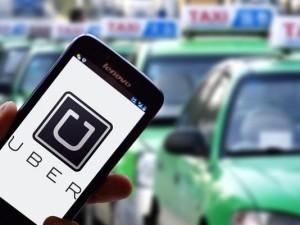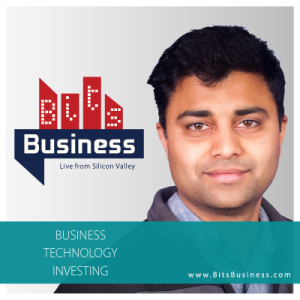From the frontlines of the gig economy
— May 11, 2016A study by Intuit has forecasted that by 2020, 40% of American workers will be independent contractors. There is a new name for this trend: the “gig economy.”
Almost half of the executives surveyed (42 percent) expect to increase or significantly increase the use of contingent workers in the next three to five years – Deloitte Press
 In the gig economy, businesses and individuals are part of an ecosystem in which the workforce is mostly freelancers who have the freedom to select projects, or “gigs,” of their liking and at their convenience. These opportunities don’t provide the stability of a
In the gig economy, businesses and individuals are part of an ecosystem in which the workforce is mostly freelancers who have the freedom to select projects, or “gigs,” of their liking and at their convenience. These opportunities don’t provide the stability of a
paycheck or the safety of a permanent job with a corporation; however, the upside is that these workers gain more control over their time and lifestyle. Businesses save resources in terms of benefits, office space and training. They also have the ability to contract for specific projects with experts who might be too high-priced to maintain on staff.
In this digital age, the workforce is increasingly mobile and work can increasingly be done from anywhere, so that job and location are decoupled.Companies like Airbnb and Uber embody this trend. They are not the only organizations profiting from the gig economy, which has been with us since the early 2000s. Sites like www.elance.com were pioneers in outsourcing. Many small businesses and startups have benefited from outsourcing their jobs to freelancers on elance and other similar platforms, and thousands of programmers, virtual assistants and copywriters are earning decent income around the world.
In 2007 the world was introduced to the iPhone, and it has changed the way we communicate, travel, work, and conduct business. Smartphone sales in the U.S. have grown at a rate of 30% a year from 2005 to 2016, and nearly 80% of mobile subscribers now own smartphones. They have had a significant impact on many industries, and the gig economy is no exception. One of the recent trends to emerge with the arrival of smartphones is hyper-local services. There are many players in this space. Some of the names that have made news in Silicon Valley are TaskRabbit and Zaarly, which help users run errands by connecting them to folks in their neighborhoods, and HomeJoy, which specializes in house cleaning services
Who is Ian Balina and What is PeerHustle
 In this episode I talk to Ian Balina. He is the founder and CEO of Peer Hustle, a mobile on-demand freelancer marketplace for the sharing economy, often called “Uber for Freelancers.” Ian is an avid entrepreneur and hustler. He has started many businesses and has a deep understanding of the gig economy. We discuss trends in the sharing economy and how Ian realized the need for a hyper-local platform for freelancers. Ian also shares some of the challenges he faced as an entrepreneur and the lessons he has learned.
In this episode I talk to Ian Balina. He is the founder and CEO of Peer Hustle, a mobile on-demand freelancer marketplace for the sharing economy, often called “Uber for Freelancers.” Ian is an avid entrepreneur and hustler. He has started many businesses and has a deep understanding of the gig economy. We discuss trends in the sharing economy and how Ian realized the need for a hyper-local platform for freelancers. Ian also shares some of the challenges he faced as an entrepreneur and the lessons he has learned.
Listen to my interview with Ian Balina
PeerHustle
Peer Hustle’s mission is to turn regular citizens into micro-entrepreneurs. It is a local on-demand peer-to-peer freelancer marketplace that connects people looking to quickly hire people for special skill-sets with people specialized in those skill-sets. It lets users tap into the sharing economy and share their unique skills and expertise with their neighborhoods and communities.
Here are some highlights of Peer Hustle platform innovations.
A hybrid platform combining the best of remote and local platforms :
- Hire freelancers or receive job proposals in your local area based on skill sets
- Only compete with freelancers in your local area, not the entire world
- Ability to work remotely or in-person
Mobile:
- Work and hire remotely or in-person with other local freelancers.
- In-app messaging, phone calls and video chat for real-time communication.
- Hyper-local, similar to location-based apps like Tinder; a freelancer’s location is based on the location of their current phone, not a physical address.
User Experience:
- Real people, real names, not businesses or brick and mortars
- Every freelancer’s price is publicly displayed to save the hassle of contacting numerous providers to receive price quotes
- Similar to Uber, integrated payments, no need to handle payment processing outside the app
- Timed deadlines for accepting and completing jobs
- Jobs don’t start until escrow account is funded and payment only made when job meets client’s satisfaction
- Every job done gets reviewed, no need to ask client for a review
- Every review is a paying customer
- Social media integration – Built in functionality to promote to your social media channels
Books and Resources mentioned in this episode
Ian’s reading recommendations :
- Rich Dad Poor Dad – Robert Kiyosaki
- Psycho-Cybernetics, A New Way to Get More Living Out of Life – Maxwell Maltz
Ian’s favorite entrepreneurs and businessmen :
-
Jeff Bezos – Founder and CEO of Amazon.com
-
Bill Gates – Founder and former CEO if Microsoft.
-
Michael Dell – Founder rand CEO of Dell Computers.
How to contact Ian Balina
Ian’s Twitter account : @peerhustle
Ian’s Linkedin profile : Ian Balina@Linkedin
email : info@peerhustle.com
Podcast: Play in new window | Download | Embed

Leave a reply